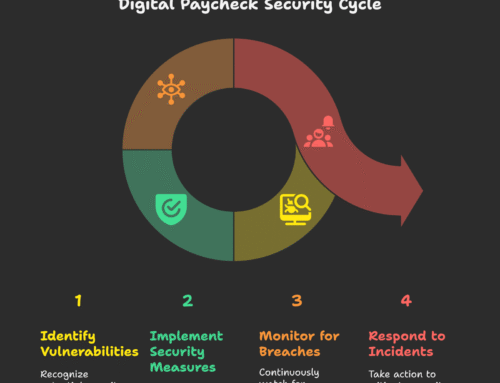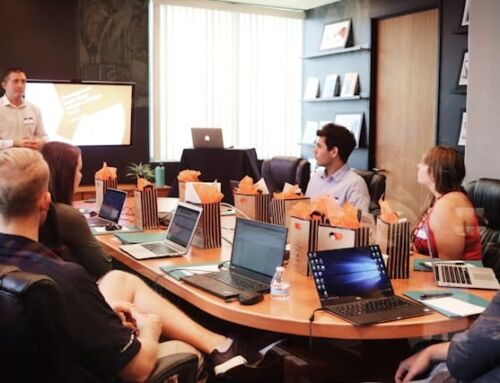Hiring the right candidate is crucial for business success. Yet, despite HR teams’ best efforts, human errors in hiring are more common than we’d like to admit. From unconscious biases to misreading resumes, these mistakes can lead to costly decisions that affect company culture, productivity, and overall business performance. Thankfully, automation is changing the game, helping businesses streamline their hiring processes, improve accuracy, and reduce costly hiring errors.
Image by Racool_studio on Freepik
The Hidden Cost of Human Error in Hiring
Recruitment is a time-consuming and intricate process, and mistakes can be expensive. Hiring the wrong person doesn’t just mean lost productivity—it also leads to additional recruitment and training costs. A bad hire can impact team morale, increase turnover rates, and even damage a company’s reputation.
Common human errors in hiring include:
- Unconscious bias that affects decision-making
- Inaccurate resume screening due to oversight
- Misjudging candidates based on first impressions
- Poor interview techniques leading to missed red flags
- Lack of standardized evaluation processes
These errors can be minimized, if not eliminated, with the right use of automation in recruitment.
How Automation Transforms the Hiring Process
Automation has made hiring more efficient, accurate, and fair. By incorporating AI-powered tools and data-driven software, companies can make better hiring decisions and ensure they bring in the best talent for the job.
Automated Resume Screening
Traditional resume screening relies heavily on human judgment, which can lead to oversight or bias. Automated applicant tracking systems (ATS) use AI to scan and filter resumes based on specific job criteria. These systems analyze skills, experience, and qualifications, ensuring only the most suitable candidates move forward. This eliminates the risk of human error and speeds up the hiring process significantly.
Reducing Unconscious Bias
Unconscious bias is one of the biggest challenges in hiring. Even the most experienced recruiters can unknowingly favor candidates based on factors such as gender, ethnicity, or background. Automation helps mitigate bias by standardizing candidate evaluations. AI-driven platforms assess applicants purely on their qualifications, skills, and experience rather than subjective factors. This ensures a more diverse and inclusive workforce. With the growing integration of HR automation tools like Happy HR, businesses can optimize their hiring strategies, reduce errors, and build stronger teams.
Enhancing Interviewing Processes
Structured interviews are essential for making fair and objective hiring decisions. Automated interview platforms provide consistent question sets and evaluation criteria, ensuring every candidate is assessed on the same basis. Video interview software with AI analysis can also evaluate speech patterns, facial expressions, and other non-verbal cues to provide additional insights into a candidate’s suitability.
Data-Driven Decision Making
Making hiring decisions based on gut feelings can lead to costly mistakes. Automation allows recruiters to make data-driven decisions by analyzing past hiring patterns, performance metrics, and employee retention rates. This data helps identify trends and predict which candidates are likely to succeed in a given role. Companies using AI-driven recruitment analytics see significant improvements in hiring accuracy and long-term employee satisfaction.
Improved Candidate Experience
Automation doesn’t just benefit recruiters; it also enhances the candidate experience. AI-driven chatbots provide instant responses to candidate queries, schedule interviews, and keep applicants updated on their application status. A smoother, more transparent process helps maintain a positive employer brand and increases the likelihood of attracting top talent.
Better Compliance and Documentation
Hiring involves numerous legal and regulatory requirements, from data protection laws to equal opportunity employment regulations. Automated systems ensure compliance by maintaining thorough records, flagging inconsistencies, and reducing human oversight errors. This minimizes the risk of legal issues and ensures a fair hiring process for all applicants.
The Future of Automated Hiring
As technology continues to advance, the role of automation in hiring will only grow. Machine learning and AI-driven tools will become more sophisticated, enabling even more precise candidate assessments. Predictive analytics will allow companies to anticipate hiring needs and fill roles proactively.
Final Thoughts
Human errors in hiring are inevitable, but they don’t have to be costly. By leveraging automation, businesses can streamline recruitment, eliminate biases, and make smarter hiring decisions. Whether it’s AI-powered resume screening, automated interview processes, or data-driven insights, automation is revolutionizing the way companies hire talent. Investing in the right HR technology can mean the difference between a successful hire and a costly mistake. As hiring continues to evolve, embracing automation is no longer a luxury—it’s a necessity for companies looking to stay competitive in today’s fast-paced job market.







Leave A Comment